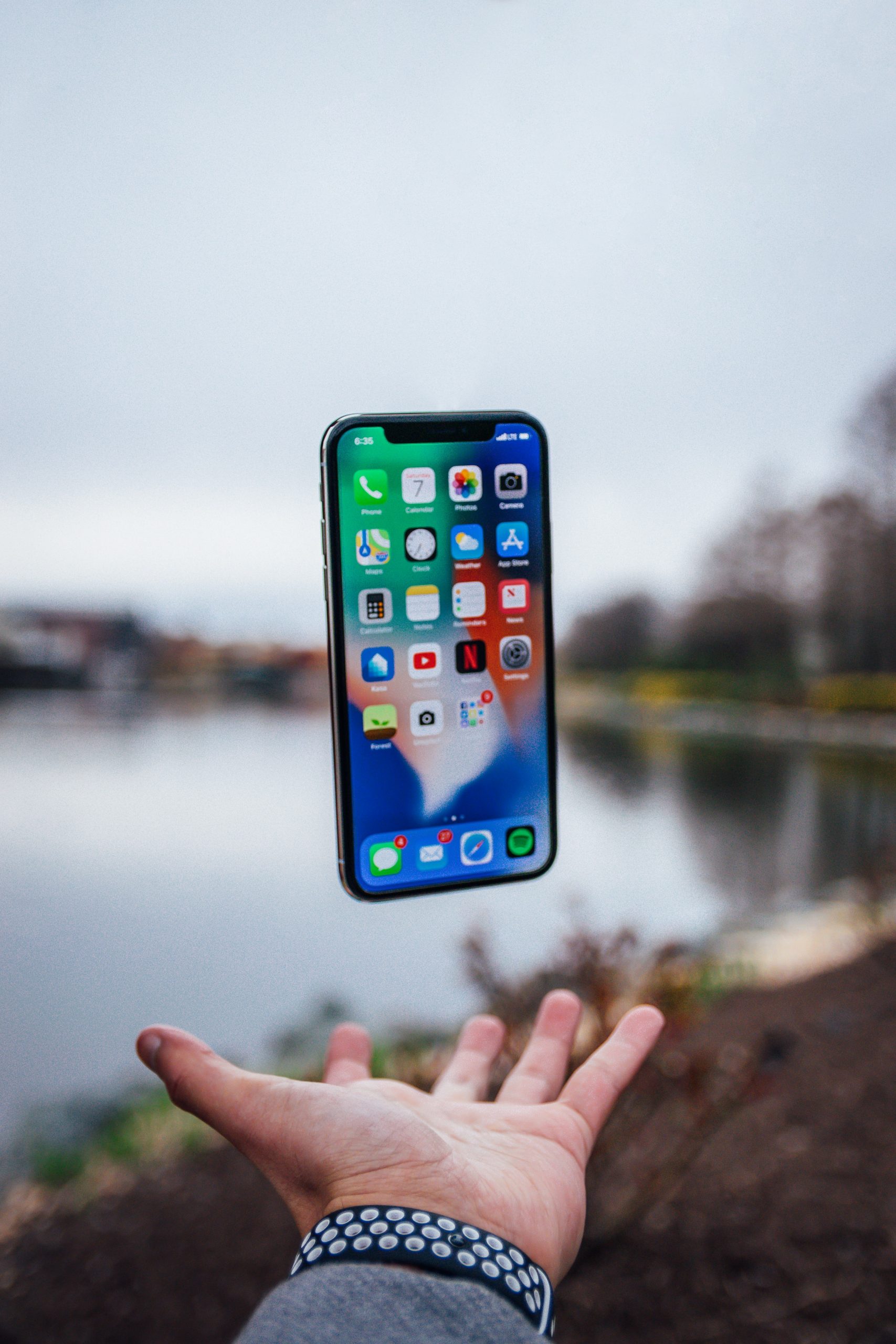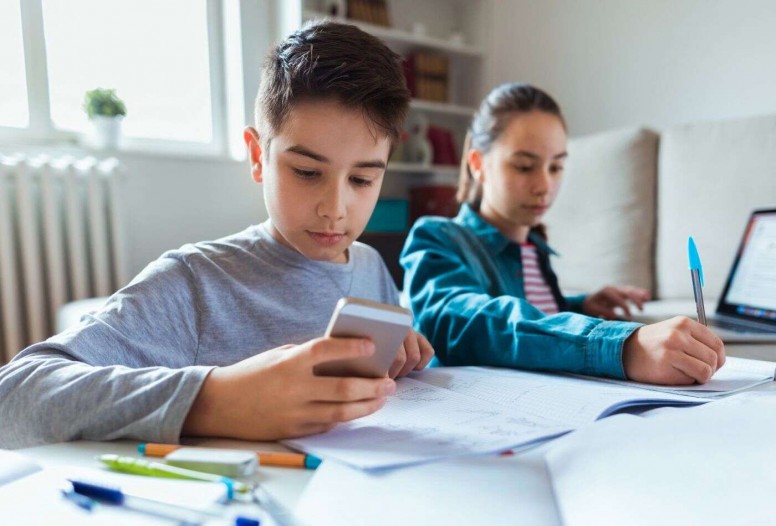Hello!
 Mobile phones have become a vital part of modern society. Today, not only adults use them, but also teenagers and primary school pupils. But is it the right thing to do? Is it acceptable to bring a smartphone to school? How does it affect learning? That is what we will talk about in this article. The role of access to a smartphone in school life is sometimes simply underestimated. In many establishments, they are not permitted. But children utilize their phones to exchange information, share news, and, of course, communicate by using social media. That is why phones can be used effectively in this field.
Mobile phones have become a vital part of modern society. Today, not only adults use them, but also teenagers and primary school pupils. But is it the right thing to do? Is it acceptable to bring a smartphone to school? How does it affect learning? That is what we will talk about in this article. The role of access to a smartphone in school life is sometimes simply underestimated. In many establishments, they are not permitted. But children utilize their phones to exchange information, share news, and, of course, communicate by using social media. That is why phones can be used effectively in this field.
You Can be in Touch With Your Children
 The main argument for cell phones in the classroom is safety and the ability to get help in an emergency: to call an ambulance and the fire brigade, to call parents and friends in case of trouble. For parents, it is obviously important to be in touch with their children on a regular basis. At any moment, they can reach the child and find out where they are.
The main argument for cell phones in the classroom is safety and the ability to get help in an emergency: to call an ambulance and the fire brigade, to call parents and friends in case of trouble. For parents, it is obviously important to be in touch with their children on a regular basis. At any moment, they can reach the child and find out where they are.
In addition, today’s hectic pace of life, with both parents working and not being able to spend much time with their children, contributes to more and more freedom and independence for children. Adults find it harder to keep an eye on them. A cell phone can help them monitor their child’s location. There are plenty of apps that use GPS technology for this purpose.
Additional Tools for Learning
The higher the involvement, the better the academic results, which is well known. Motivated children not only enjoy lessons more, but they also master the material faster and integrate study into everyday experience. If used properly, a phone can be a useful tool. Duolingo, Moodle, and Quizlet are notable examples of educational apps.
Mobile phones provide access to internet websites with educative information to be used as a form of distance schooling. Smartphones and their features enable education with adapted e-textbooks, training courses, and specialized types of files with instructional information – tutorials are developed directly for cell phone platforms.
 It is also possible to implement game-based training programs. This approach will engage modern children more quickly than the traditional form. Some subjects are more difficult for the students to comprehend. Various visual effects, sounds, and animation are attractive to students of different ages. Using cell phones and a creative mix of these elements is an effective way to capture their attention and evoke excitement. It improves concentration. Studying by watching interactive online videos assists students in reducing stress and feeling relaxed. They can realize the excitement of schooling, enjoy it and benefit from the process.
It is also possible to implement game-based training programs. This approach will engage modern children more quickly than the traditional form. Some subjects are more difficult for the students to comprehend. Various visual effects, sounds, and animation are attractive to students of different ages. Using cell phones and a creative mix of these elements is an effective way to capture their attention and evoke excitement. It improves concentration. Studying by watching interactive online videos assists students in reducing stress and feeling relaxed. They can realize the excitement of schooling, enjoy it and benefit from the process.
Moreover, music can help children stay focused and maintain high productivity levels. Letting them listen to unobtrusive melodies during individual tasks will only positively affect their performance.
Teacher Advancement
Not only children but also teachers can benefit from the usage of phones. They can create their own online tests. This can be a great way to interact with students at practically any time. The number of such online tools is growing rapidly. There is a growing number of online resources that help teachers not only create such quizzes but also involve new kinds of didactic instruments at all stages of teaching activity: cooperative activities, interactive worksheets, online infographics, simulators, virtual laboratories, and much more. Obviously, they need to improve their computer skills for this.
Voice Notes
 Teachers nowadays pay attention to such methods and organizational forms of teaching as lectures. They are held when complex theoretical material is studied, when the initial topics of the course are covered or when systematization is carried out at the end of a large unit. The main purpose of a lecture is to impart knowledge and form general skills for education. Students should learn, while listening to the lecture, to take notes of the main content in the form of a simple plan. Everything else can be recorded in voice notes for educational purposes. This is another plus of having a phone in schools.
Teachers nowadays pay attention to such methods and organizational forms of teaching as lectures. They are held when complex theoretical material is studied, when the initial topics of the course are covered or when systematization is carried out at the end of a large unit. The main purpose of a lecture is to impart knowledge and form general skills for education. Students should learn, while listening to the lecture, to take notes of the main content in the form of a simple plan. Everything else can be recorded in voice notes for educational purposes. This is another plus of having a phone in schools.
A Stronger Community Through Social Media
 Communication plays an important role in all aspects of our lives. Pros of allowing cell phones and social media for children are a relevant and interesting topic for research today. And educational institutions are by no means exceptions to the rule. In social networks, chats are used to exchange necessary information and access homework, e-textbooks, or guidebooks. All children can express their opinions about different aspects of their lives in chat rooms.
Communication plays an important role in all aspects of our lives. Pros of allowing cell phones and social media for children are a relevant and interesting topic for research today. And educational institutions are by no means exceptions to the rule. In social networks, chats are used to exchange necessary information and access homework, e-textbooks, or guidebooks. All children can express their opinions about different aspects of their lives in chat rooms.
It is also about increasing the level of interaction between the teacher and the students and between the teacher and the parents. Because the number of participants is quite large, it is sometimes difficult to keep in contact with each individual to check their progress and to know their opinion on issues related to tuition and extracurricular activities. All of these problems can be solved through social networking. Therefore, it is worth taking the opportunity to apply it to the studying process to approach learners and prepare them for self-education.
Summary
 So there are plenty of reasons why these devices should be allowed. Mobile phones can be a very convenient and effective learning tool to complement standard instruments. It is possible to increase the variety and visibility of educational materials while remaining within the familiar environment of the learner. As a result, children become more interested in the subject and achieve better academic results. The only thing to do is to incorporate them into the process correctly, so they do not become a distraction.
So there are plenty of reasons why these devices should be allowed. Mobile phones can be a very convenient and effective learning tool to complement standard instruments. It is possible to increase the variety and visibility of educational materials while remaining within the familiar environment of the learner. As a result, children become more interested in the subject and achieve better academic results. The only thing to do is to incorporate them into the process correctly, so they do not become a distraction.
Thank you!
Join us on social networks!
See you!






